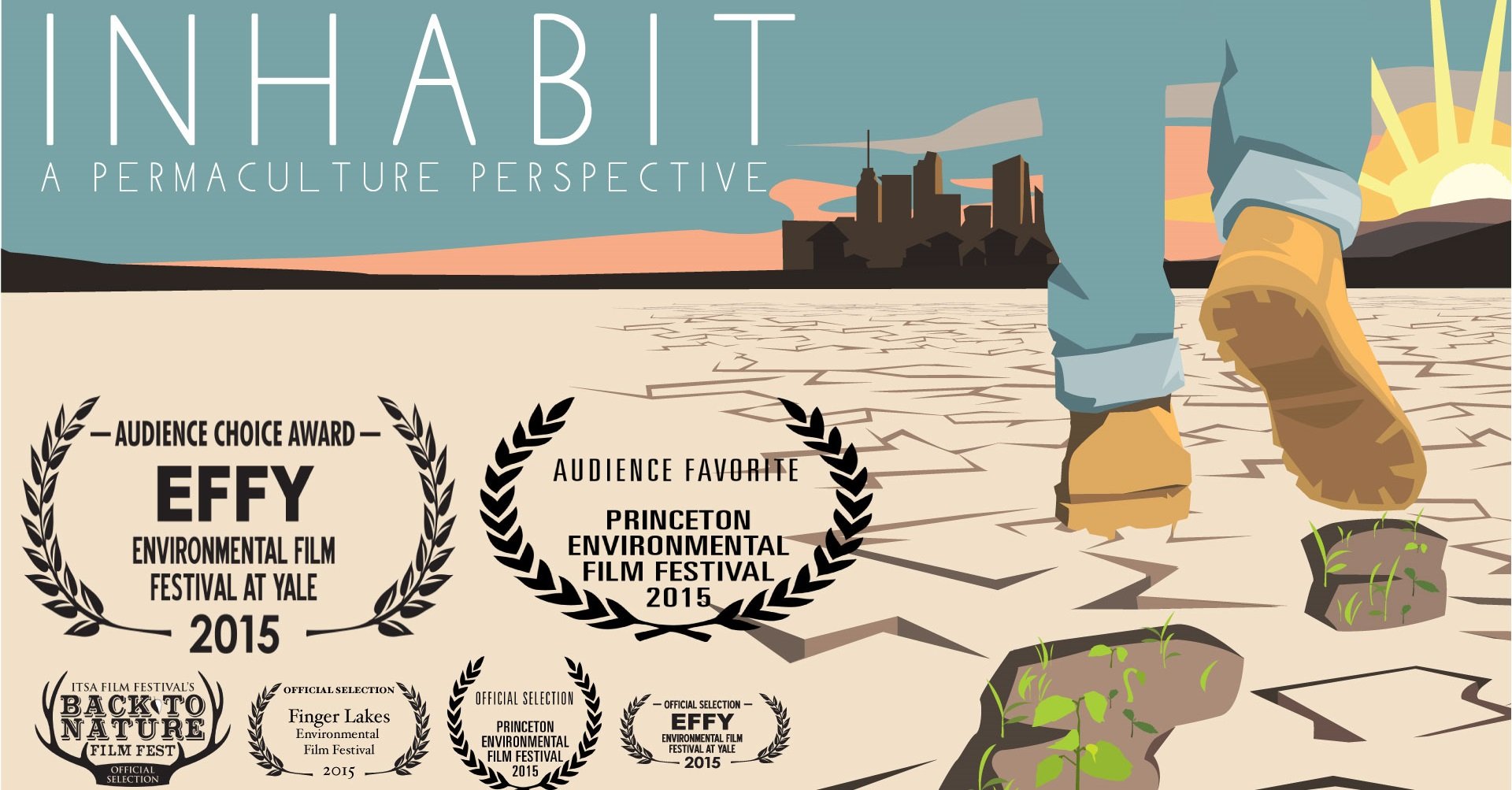“All we need to live a good life surrounds. Sun, win, people. buildings, stones, sea, birds, and plants. Cooperation with all these things brings harmony, opposition to them brings disaster and chaos.”
-Bill Mollison, Co-Founder of Permaculture.

Inhabit is incredibly valuable to all of the world’s beings. There is just no other way to properly say it.
If you need hope in a dreary world of newspeak, this is it.
If you need legitimate, no fluff ideas to have an impact on your environment, fellow humans and more-than-human communities… this is it.
If you need easy-on-the-eyes entertainment that will include cute animals and teach you at least one things along the way… this is also that.
I have seen this movie more than a few times now, and it was the first thing I thought of assigning myself when I thought of roaming into the video form of infotainment. I was on death’s door with an illness that turned me inside out a few years back. My partner at the time was also ill, and there we sat in bed, googling “permaculture videos” to see what we could pass the time within that delightfully inspiring category. I had seen a number of small videos related to the subject and knew of people studying it in my community, but I had not ever immersed myself into it’s seemingly alternative (read: all-too-real) reality.
In their own words:
“Inhabit explores the many environmental issues facing us today and examines solutions that are being applied using the ecological design process called ‘Permaculture’. Permaculture is a design lens that uses the principles found in ecosystems to help shift our impact from destructive to regenerative. Focused mostly on the Northeastern and Midwestern regions of the United States, Inhabit provides an intimate look at permaculture peoples and practices ranging from rural, suburban, and urban landscapes.”
It was inspiring to say the least.
If you need to stop reading here.
Go watch it.
If you can’t afford it. I will buy for you.
It was the best $10 I ever spent to own it. It is only $3? to rent.
Here’s the link, you’re welcome.
https://vimeo.com/ondemand/inhabit
Some highlights:
-Ducks eating slugs. Seriously, as Bill Mollison always said, “You don’t have a slug problem, you have a duck deficiency…”
This is the movie and definition of permaculture in a nutshell. Your problems are your solutions. If you have too many slugs eating all the mushrooms in your fungus log farm, you don’t spray the mushrooms or poison the slugs (and yourself). You get ducks to roam the log farm and eat them for you. Side-effect: Duck eggs, seasonal local, pasture-raised meat, and/or cute baby ducklings. Your move.
Charles Eisenstein, the author of many books including Sacred Economics, is such a lovely example of a human and his presence in this movie is not surprising.
““When everything is subject to money, then the scarcity of money makes everything scarce, including the basis of human life and happiness. Such is the life of the slave—one whose actions are compelled by threat to survival. Perhaps the deepest indication of our slavery is the monetization of time.” -C.Eistenstein.
If you don’t want to grow food, serve your community, consider energy conservation, and/or get baby ducks after this movie, then I don’t know what else to tell you.
“True discipline is really just self-remembering; no forcing or fighting is necessary.” -Charles Eisenstein
All of our problems are really just solutions waiting to happen. This does not diminish their seemingly insurmountable scale, but it needs to be said so that every individual, no matter their circumstance, can be inspired to affect change in their lives, community, and environment. This movie is a testament to people living their lives as examples of it. We need to apply unique solutions to our own situation, yet there are countless examples of people solving almost any problem we can think of. If we just turned off the news and started turning towards each other.
“Never doubt that a small group of thoughtful, committed, citizens can change the world. Indeed, it is the only thing that ever has.”
-Margaret Mead